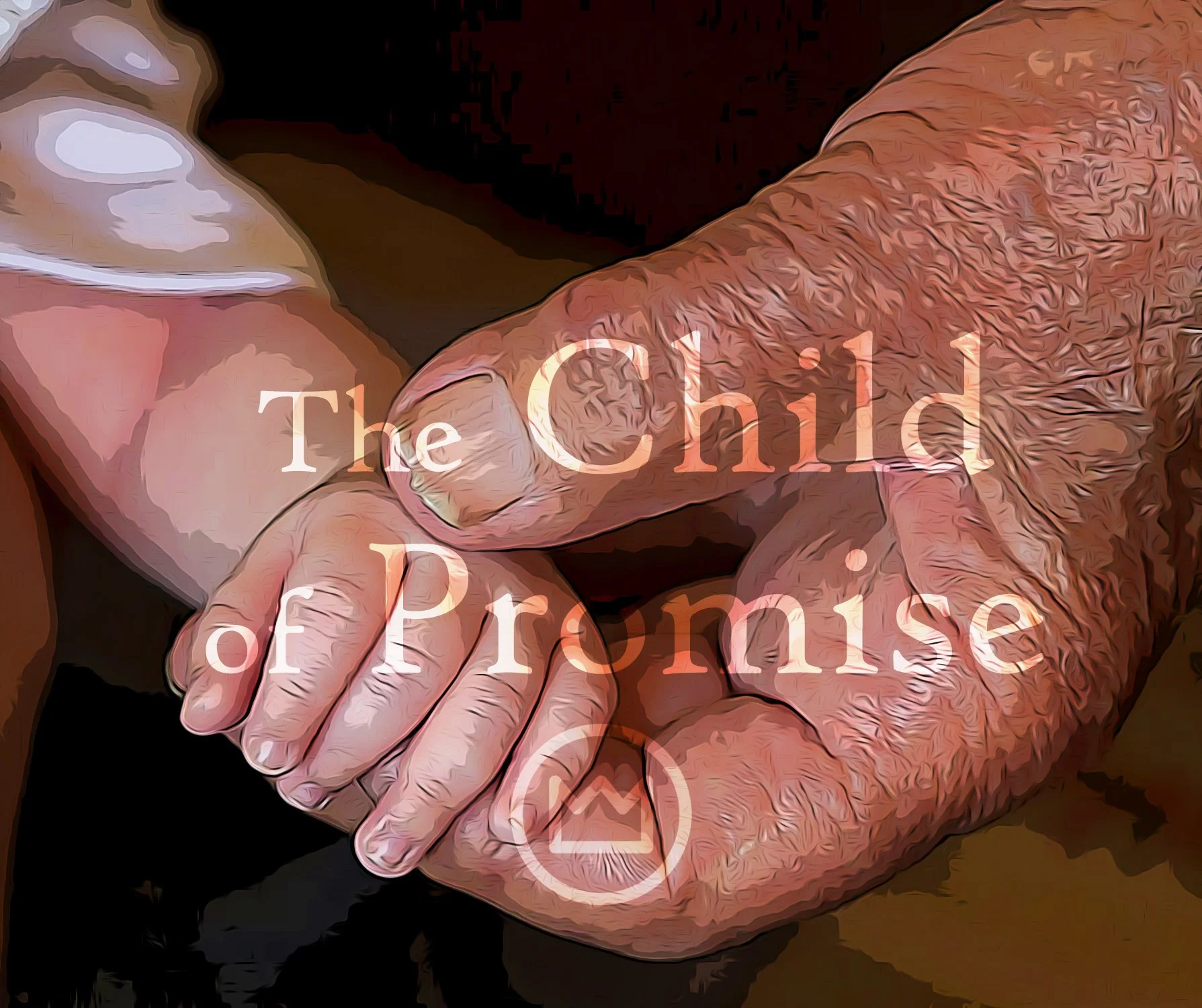The Child of Promise
“But My covenant I will establish with Isaac, whom Sarah will bear to you at this season next year.”
(Genesis 17:21)
Walk By Faith, Not By Sight
Christians are called to walk by faith and not by sight. This is not a wishy-washy call to live by wishful thinking. Many people get this wrong. To be as clear as possible: Christians are not called to trust in faith. We are not called to trust in our ability to muster up feelings or emotions. On the contrary, we put our trust in the Person of God. This is very different.
Walking by faith is not a path walked while trusting in our own wishful thinking. Instead, it is a command to trust that God is able to accomplish what He has said He will do. Walking by faith is living in a confident expectation that God will do as He promised.
Scripture records God's faithfulness throughout history. Often God chooses to reveal His hand by working through circumstances that would be impossible if not for His miraculous intervention. These miraculous workings serve as evidence that God will likewise do as He has promised in regards to the salvation of individuals who put their faith in Christ. Salvation would be impossible if not for God's miraculous intervention.
When our faith is put in God and what He has said, it is well placed. If our faith is put in our own “faith” and ability to will things into existence, we will find that this foundation is flimsy at best.
The Promised Son
God laid the foundation for salvation in the promised seed to come through Abraham. Abraham believed God. His faith in God's promise was credited to Abraham as righteousness. However, time continued to march on. By sight it seemed like this promise was simply wishful thinking. As the years passed, the fulfillment of this promise seemed more and more unlikely.
Abraham had faith. But he did not yet see how God would fulfill this promise. At the time of hearing these promises, Abraham was already growing old. Abraham's wife, Sarah, was barren (Genesis 11:30). A foolish decision was eventually made. Attempting to take hold of God's promise through their own means. Since Sarah was barren, Sarah gave her maid Hagar to Abraham to bring forth a child (Genesis 16:1-4).
At the age of 86, Abraham had his first biological child, Ishmael, with Hagar (Genesis 16:15-16). But this was not the promised son.
In Genesis 17, God tells Abraham that the promised son would be born from Sarah. This declaration was laughable. It didn't make any sense. He was old. His wife was old. She was barren even when they were young. Now she was past child-bearing years. Abraham even argued with God saying that this plan did not make any sense. Abraham asked if God would simply apply the promise to his teenage son, Ishmael.
Then Abraham fell on his face and laughed, and said in his heart, “Will a child be born to a man one hundred years old? And will Sarah, who is ninety years old, bear a child?” And Abraham said to God, “Oh that Ishmael might live before You!” But God said, “No, but Sarah your wife will bear you a son, and you shall call his name Isaac; and I will establish My covenant with him for an everlasting covenant for his descendants after him.” (Genesis 17:17-19)
God chose this timing. This situation. So that His power would be evident. Impossible with human beings. Possible for God.
A Shadow of the Substance to Come
The birth of Isaac through the dead womb of his mother Sarah foreshadows the miraculous nature of the Messiah's miraculous birth through the virgin womb of Mary. Both are humanly impossible without the miraculous intervention of God. Both demonstrate God's ability to do all he Has promised. Both show that faith in God is well-placed. Because God is faithful.
Walking by faith would be foolish if the object of our faith was untrustworthy. God has wisely demonstrated His faithfulness and power repeatedly throughout history so that His people will learn that walking by faith and not by sight is the truly wise way to live.

